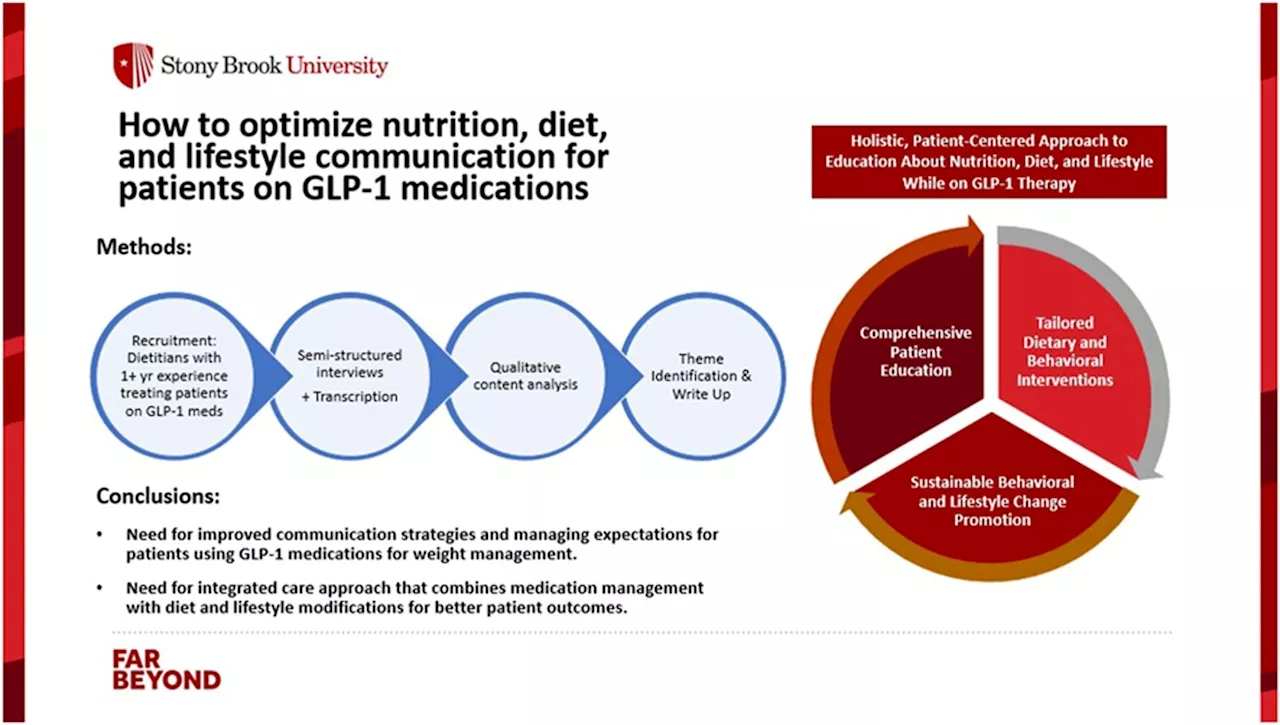GLP-1 receptor agonists and SGLT2 inhibitors, two classes of medications most commonly prescribed to treat Type 2 diabetes or weight loss, may reduce the risk of heart attack, second strokes and death in adults who had an initial stroke, according to a preliminary study to be presented at the American Heart Association's Scientific Sessions 2024.
American Heart AssociationNov 11 2024 GLP-1 receptor agonists and SGLT2 inhibitors, two classes of medications most commonly prescribed to treat Type 2 diabetes or weight loss , may reduce the risk of heart attack , second strokes and death in adults who had an initial stroke, according to a preliminary study to be presented at the American Heart Association's Scientific Sessions 2024. The meeting, Nov.
In this study, Sheffeh and colleagues evaluated whether two classes of medications for treating Type 2 diabetes are associated with a decreased risk of heart attacks, secondary stroke or death in stroke survivors. The other medication class, sodium-glucose cotransporter 2 inhibitors , lowers blood sugar levels by inducing the kidneys to remove excess glucose from the body through the urine. The SGLT2 medications canagliflozin, dapagliflozin, empagliflozin and ertugliflozin are approved by the FDA for the treatment of Type 2 diabetes.
The researchers also conducted a subanalysis of patients who took the medications for at least six months to confirm if the medications' association with a lower risk of heart attack, recurrent stroke and death could be attributed to the medications. The results were similar to those in the primary study: the medications were associated with lower risk of heart attack, recurrent stroke and death, Sheffeh noted.
Heart Heart Attack Stroke Agonist Blood Blood Pressure Blood Sugar Brain Cardiovascular Disease CT Diabetes Epidemiology GLP1 Glucagon Glucagon-Like Peptide-1 Glucose Heart Disease Heart Failure Hormone Insulin Kidney Kidney Disease Medicine Obesity Pancreas Peripheral Artery Disease Receptor Research Semaglutide Type 2 Diabetes Weight Loss
United Kingdom Latest News, United Kingdom Headlines
Similar News:You can also read news stories similar to this one that we have collected from other news sources.
 Rise in weight-management glucose-lowering drug prescriptions in type 1 diabetes patientsFrom 2010 to 2023, GLP-1RAs and SGLT2 inhibitors saw rising prescriptions in type 1 diabetes, particularly for patients with obesity and cardiorenal risks.
Rise in weight-management glucose-lowering drug prescriptions in type 1 diabetes patientsFrom 2010 to 2023, GLP-1RAs and SGLT2 inhibitors saw rising prescriptions in type 1 diabetes, particularly for patients with obesity and cardiorenal risks.
Read more »
 'I'm an American in the UK – certain type of British crisps should be illegal'An American living the UK has rated British crisps, and his favourite may surprise you. US citizen turned Londoner Kjordyyy is known for documenting his new life on British soil
'I'm an American in the UK – certain type of British crisps should be illegal'An American living the UK has rated British crisps, and his favourite may surprise you. US citizen turned Londoner Kjordyyy is known for documenting his new life on British soil
Read more »
 Study: GLP-1RA not associated with acute kidney injury risk during anti-cancer treatmentsGlucagon-like peptide-1-receptor agonists (GLP-1RA) are medications that are increasingly prescribed for patients with type 2 diabetes and congestive heart failure. Reports of GLP-1RA–associated acute kidney injury (AKI) have emerged, but the risk of GLP-1RA–associated AKI among patients on anti-cancer drugs is unclear.
Study: GLP-1RA not associated with acute kidney injury risk during anti-cancer treatmentsGlucagon-like peptide-1-receptor agonists (GLP-1RA) are medications that are increasingly prescribed for patients with type 2 diabetes and congestive heart failure. Reports of GLP-1RA–associated acute kidney injury (AKI) have emerged, but the risk of GLP-1RA–associated AKI among patients on anti-cancer drugs is unclear.
Read more »
 New guidance balances GLP-1 risks and benefits for surgeryMost patients may continue to safely take glucagon-like peptide-1 (GLP-1) receptor agonists as prescribed before undergoing elective surgery and gastrointestinal endoscopies, according to new clinical guidance released today by five surgical and medical societies including the American Society for Metabolic and Bariatric Surgery (ASMBS), American...
New guidance balances GLP-1 risks and benefits for surgeryMost patients may continue to safely take glucagon-like peptide-1 (GLP-1) receptor agonists as prescribed before undergoing elective surgery and gastrointestinal endoscopies, according to new clinical guidance released today by five surgical and medical societies including the American Society for Metabolic and Bariatric Surgery (ASMBS), American...
Read more »
 Surge in GLP-1 drug use for obesity coincides with drop in bariatric surgeryResearchers from Mass General Brigham and collaborators found that use of GLP-1 drugs to treat obesity more than doubled from 2022 to 2023 while rates of surgery dropped by one quarter.
Surge in GLP-1 drug use for obesity coincides with drop in bariatric surgeryResearchers from Mass General Brigham and collaborators found that use of GLP-1 drugs to treat obesity more than doubled from 2022 to 2023 while rates of surgery dropped by one quarter.
Read more »
 Dietitians boost GLP-1 therapy success with personalized care and side effect managementResearchers reveal the importance of personalized communication and side effect management in improving outcomes for patients on GLP-1 medications for weight management. The study highlights the critical role of dietitians in guiding lifestyle and dietary changes.
Dietitians boost GLP-1 therapy success with personalized care and side effect managementResearchers reveal the importance of personalized communication and side effect management in improving outcomes for patients on GLP-1 medications for weight management. The study highlights the critical role of dietitians in guiding lifestyle and dietary changes.
Read more »
